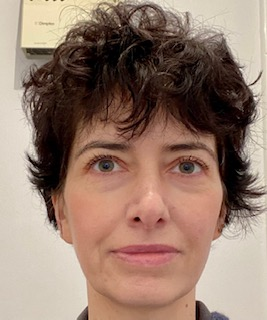National Conversation Week - having a good conversation
 How do you start a conversation with someone about a difficult subject?
How do you start a conversation with someone about a difficult subject?
Can you have a ‘good’ conversation on social media or text message?
As part of National Conversation Week, Dr Roberta DeRossi, a consultant clinical psychologist and head of our adult community psychological services in mid Essex, shares some things to think about.
How freely we talk about different subjects is cultural
There are some cultures where you can talk about subjects more freely than in others where it may be a bit more taboo.
Generational differences and your personal experiences also have an impact. For example, I remember with my grandfather you couldn’t mention the word ‘period’ – it wasn’t a subject he would want to talk about. But with my father, it was different.
So remember we all have different beliefs about what is okay to talk about and what isn’t.
Having a conversation about a difficult subject
Don’t assume talking about something will be easy for everyone.
Maybe open up a conversation by asking ‘is it okay to talk about this?’ or ‘I would like to talk about this, is that okay?’
There will be some situations where it’s not the right time or right context to have the conversation.
As a therapist, if a client is finding it very difficult to talk about something, usually what I do is express my curiosity about why they are finding it difficult.
For example, I might say ‘every time I mention this subject, you seem uncomfortable with it, what might get in the way of us talking about it?’
So we move the conversation to talking about what they are feeling and what makes it hard for them to talk about a specific thing.
Relationships are key
When it comes to having difficult conversations or asking questions, the relationship you have with the other person is fundamental to enable people to speak up.
We want to know that it will be safe to speak up, that we won’t be judged or there won’t be repercussions that might affect us adversely.
Even if it’s not explicit, we form a kind of ‘contract’ with the other person. If the ‘contract’ says that it’s okay and safe for us to be vulnerable and the other person is willing to hear us - even if they disagree with what we say - then it’s possible for us to talk about subjects we find difficult.
Having a conversation online
It is important to remember that online platforms of conversation, such as social media, are simply tools for communication. But having a relationship with the person we are communicating with makes conversation easier and meaningful.
With social media, we can forget there’s another person at the other end of the text, tweet or post and we can say things that are inappropriate.
It’s a big problem because we don’t see the non-verbal communication that forms part of the conversation, such facial expressions, tone of voice and posture. These become lost so you have less cues to interpret the message you’re receiving.
At the same time, I have met some people who find it easier to talk online because it’s more anonymous and there is a bit of distance between them and the other person.
We all have our preferred method of communication.
We aren’t always good at conversations all of the time
What makes a good conversation all depends on the context because you can have a person who makes good conversation with someone at a party, and you can have someone else who makes good conversation with someone who is dying.
It is true for every one of us that we can learn interpersonal skills.
When I was a teenager, I was very shy, and now I can’t shut up.
It’s about practice, confidence and managing your worries about what may or may not happen in your conversation.
If you are anxious about having a conversation, you can learn signals to show other people you don’t want to talk about something.
If you are talking to someone and they are finding it difficult to open up, you can check with them by asking for example ‘is this okay, would you rather not talk about this?’ or ‘is there a different way we can talk about this?’
If you are struggling with difficult feelings, Therapy For You has a range of advice and resources online and in person.
Therapy for You provides free psychological therapies for people across north east and south east Essex.
The service, run by EPUT in partnership with mental health charity Mind and online therapy providers ieso, offers confidential support in person and online, by telephone or by video call, as well as group therapy sessions and online courses.
It also has a range of easy-to-use online self-help tools and resources.
People aged 18 and over living in south east Essex (Castle Point, Rayleigh, Rochford and Southend) can call 01268 739128 or book an assessment online on the Therapy For You website.
People aged 16 and over living in north east Essex (Colchester and Tendring) can call 01206 334001 or book an assessment online on the Therapy For You website.
You can also speak to your GP who may direct you to Therapy for You or another service that can offer support.
